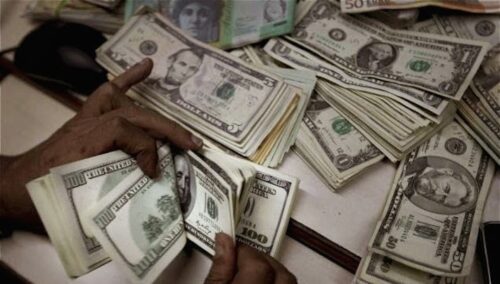Nigeria’s foreign exchange reserves have taken a hit, dropping by $832.62 million in just two weeks—from January 6 to January 21—after enjoying a period of relative stability and growth over the past five months. According to data from the Central Bank of Nigeria (CBN), the country’s FX reserves fell from $40.92 billion to $40.09 billion during this period, reflecting a 2.03% decline.
Earlier reports from BusinessDay on January 15 indicated a previous dip of $320 million, representing a 0.8% decrease in Nigeria’s reserves, which slid from $40.88 billion at the start of the year to $40.56 billion by January 2, 2025.
This downward trend underscores the mounting pressure on Nigeria’s foreign reserves, driven by persistent challenges in the currency market and broader macroeconomic uncertainties.
Experts point to two major factors behind the decline—debt servicing commitments and the CBN’s interventions in the foreign exchange market. From January to September 2024, Nigeria allocated a total of $3.6 billion to service foreign debts, marking a significant 39.8% increase compared to the $2.6 billion spent during the same period in 2023. These figures, derived from the CBN’s international payments report, highlight the financial strain caused by Nigeria’s external obligations.
According to Tobi Ehinmosan, an analyst at FBNQuest, the recent depletion of reserves can likely be attributed to ongoing debt repayments. Nigeria, like many other nations, is committed to repaying loans denominated in US dollars from international lenders such as the World Bank, the International Monetary Fund (IMF), and bilateral agreements with countries like China. The CBN, acting on behalf of the federal government, handles these payments, which can lead to periodic fluctuations in reserves depending on the timing of obligations—whether early, mid, or late in the fiscal year.

However, debt payments are not the only contributing factor. The CBN also occasionally intervenes in the FX market to stabilize the naira by injecting dollars to meet demand. Despite the naira’s recent depreciation, analysts suggest that significant interventions may not have occurred, indicating that the recent decline is more likely linked to debt servicing rather than aggressive market support measures.
It’s important to recognize that short-term fluctuations in reserves do not necessarily signal a long-term trend. Ehinmosan advises a cautious approach, noting that a more extended observation period is needed to determine whether the current downward trajectory will persist or if reserves could rebound.
Nigeria’s foreign reserves play a vital role in maintaining economic stability, serving as a financial buffer for debt servicing and currency market interventions. Muda Yusuf, CEO of the Centre for the Promotion of Private Enterprise (CPPE), emphasized the dual purpose of the reserves, noting that they are intended to fulfill obligations while ensuring exchange rate stability.
Despite the recent decline in reserves, the naira has remained relatively stable. As of Friday, the CBN quoted the exchange rate at N1,533.26 per US dollar at the Nigerian Foreign Exchange Market (NFEM), suggesting that the CBN’s strategy has so far prevented major volatility.
While the drop in reserves is concerning, it remains to be seen whether it will have long-term implications for the economy. Analysts suggest that Nigeria must find a balance between meeting its foreign debt obligations and maintaining sufficient reserves to support the economy in times of financial uncertainty.


